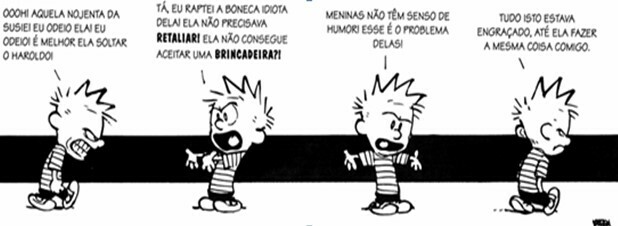THE emotional or expressive function is the one where the focus is onissuer (announcer), whoever elaborates the message, either through the verbal language spoken or written, either by non-verbal language as well. Through this type of function, it is possible to identify opinions, emotions, feelings, points of view.
Read too: Communication elements: what are they?
Characteristics of the emotive function
One of the main characteristics of the emotive or expressive function is the presence, in texts, of sequences in which the first person speech, building the subjectivity. In this sense, the occurrence of the "I" is quite remarkable, as we can see in opinion articles, poems lyrical, diaries and personal letters.

Emotional or expressive function
Another issue to note is the use of punctuation, which admits exclamations and questions, revealing feelings, reflections, as well as the use ofellipsis, which can serve to demonstrate considerations, cogitations of those who are in the communicative focus. In addition, the texts usually bring
adjectives in its construction, considering its evaluative use. Thus, in case of textual productions such as argumentative dissertations, the emotive function must be avoided.Do not stop now... There's more after the advertising ;)
Examples
The Reasonless Love
i love you because i love you
you don't need to be a lover
And you don't always know how to be
i love you because i love you
love is a state of grace
And with love you don't pay
love is given for free
is sown in the wind
In the waterfall, in the eclipse
love runs away from dictionaries
And to various regulations
i love you because i love you
enough or too much to me
because love is not exchanged
You don't marry or love
because love is love to nothing
happy and strong in itself
love is death's cousin
And of the victorious death
As much as they kill (and they do)
every moment of love
Carlos Drummond de Andrade
The poem above, by Carlos Drummond de Andrade, brings the discursive predominance of the emotive or expressive function of language, since the me lyric demonstrates his feeling, which is very clear in the lines of the first stanza, and still builds his opinion about love in the following stanzas.
In the following text, a comic strip, we see that the emotive or expressive function is revealed through verbal language and also through the character's facial and bodily expressions:

The systematic study of language functions can help us with readings and interpretations more efficient, since, when we determine the predominant function, we will be able to make statements about the discursive intentionality. In addition, understanding the structure and functioning of language can lead us to more effective productions, with which we will establish more solidary, clear communicative acts, in which speaker and interlocutor understand each other.
solved exercises
1) Mark the predominant language function in the following texts:
Text 1
I'm fed up with measured lyricism
Of well-behaved lyricism
From the lyricism of a civil servant with a time book
protocol and expressions of appreciation to the Director.
I'm tired of the lyricism that stops and will check the dictionary
vernacular imprint of a word.
Down with the purists
Manuel Bandeira
Text 2

a) Phatic function and metalinguistic function
b) Emotive function and conative function
c) Emotional function and emotive function
d) Metalinguistic function and emotive function
e) Emotional function and phatic function
Resolution:
Letter C.
Text 1 is a lyrical poem, that is, it is presented in a poetic structure, arranged in verses, with rhythmic organization, and with the intention of expressing the emotions, feelings, opinions of the poetic self, which states its position in relation to certain compositions, which it calls lyricism restrained. The emotive or expressive function is perceived linguistically, especially through the use of the 1st person singular in the inflection of pronouns and verbs.
In text 2,in the dialogue between the parrots, in which the use of humor is also predominant in the composition of the cartoon, since the parrots repeat themselves, we see the emotional or expressive function manifesting itself clearly, from the moment one of them issues his opinion, making statements about himself, as well as the perception of the constant presence of verbs and pronouns inflected in the 1st person singular
By M.The Sara Castro
grammar teacher


